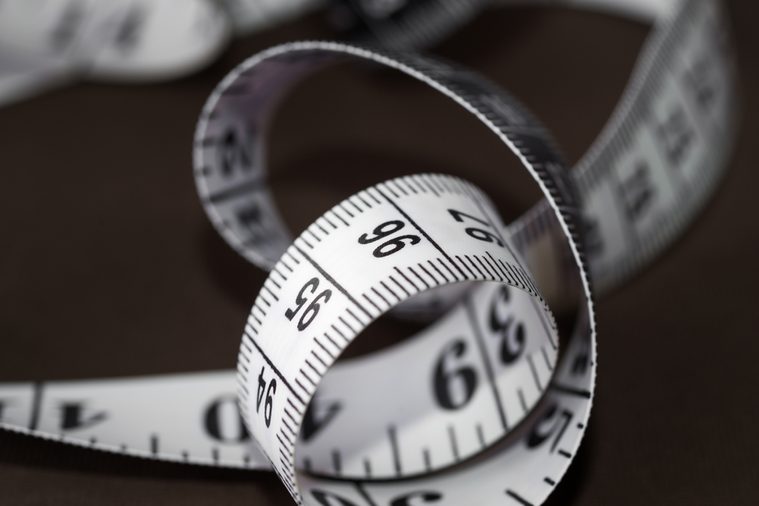
You lose weight rapidly
One of the primary reasons people are curious about the keto diet is the promise of fast weight loss. “The keto diet has a notorious reputation for quick and aggressive fat loss,” says Brett Osborn, MD, a neurosurgeon, ketogenic specialist, and medical expert with BPI Sports.
While most significant weight-loss stories come from people on extreme low-calorie, low-fat diets, this is not true for the keto diet. “It is not a starvation diet. Quite the opposite, in fact,” Dr. Osborn says. “To preserve as much muscle as possible while on the ketogenic diet, be sure to feed your body at least as many calories as it demands.” How many calories you need depends on your age, gender, and activity level.
“The weight loss is both good and bad,” says Mary Weidner, co-founder of Strongr Fastr, a keto meal-planning app. “It’s motivating and really helps people become confident in the diet, though it also is mostly water weight. Once the weight loss stalls, it can cause people to lose faith and fall off the diet.” A weight-loss plateau is one reason people quit the keto diet. Discover the 11 reasons most people fall off the keto diet.
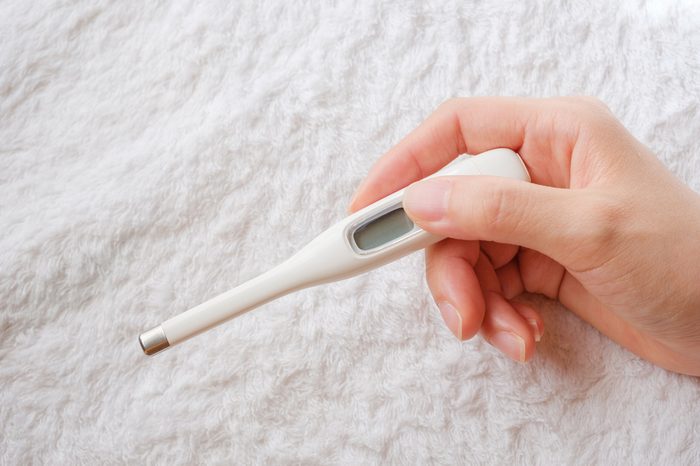
You may experience the keto flu
If you’re considering a ketogenic diet, you’ve likely heard about the dreaded “keto flu.” During the first days after starting the keto diet, you may experience carbohydrate withdrawal. This can lead to a number of symptoms, including irritability, insomnia, fatigue, headache, and mood swings.
“During the induction phase of the keto diet, many people experience brain fog. This occurs when the body reacts to the changing energy source (from carbs to fats),” says Dr. Osborn. “The sudden depletion of carbs—and the resultant lowered insulin levels—causes a diuretic effect. Dehydration and the associated electrolyte abnormalities can cause the often-described ‘keto flu.'”
“These issues are typically an easy fix. You just need to start eating more salt and potassium and drinking more water,” Weidner says. Keto flu is just one of the 11 hidden dangers of the keto diet.
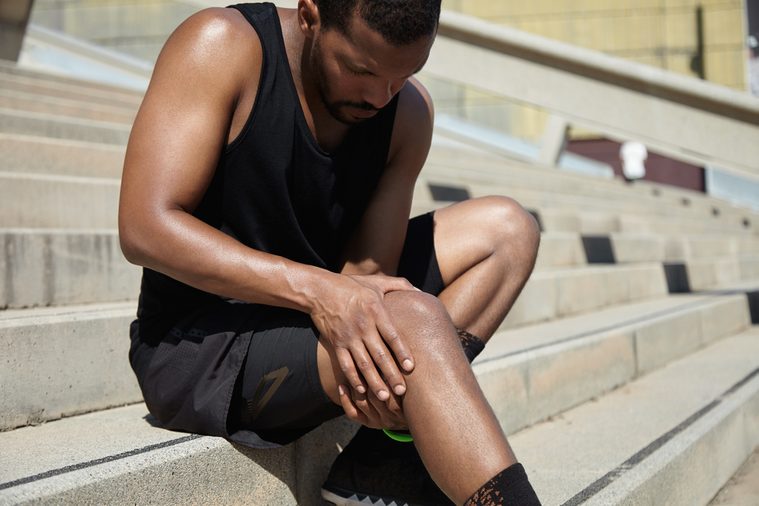
Muscle cramps can occur
Those sudden cramps in your leg or back may not be from your workouts; the keto diet may be to blame. “Often, this is due to a lack of sodium and potassium in the body,” Dr. Osborn says. “Sodium is dumped from the liver while in ketosis. The body doesn’t hold much in reserve to fuel itself after this happens, so adding more to the diet is perfectly fine, and often encouraged, to be honest.” Here’s what it’s like to follow the keto diet.
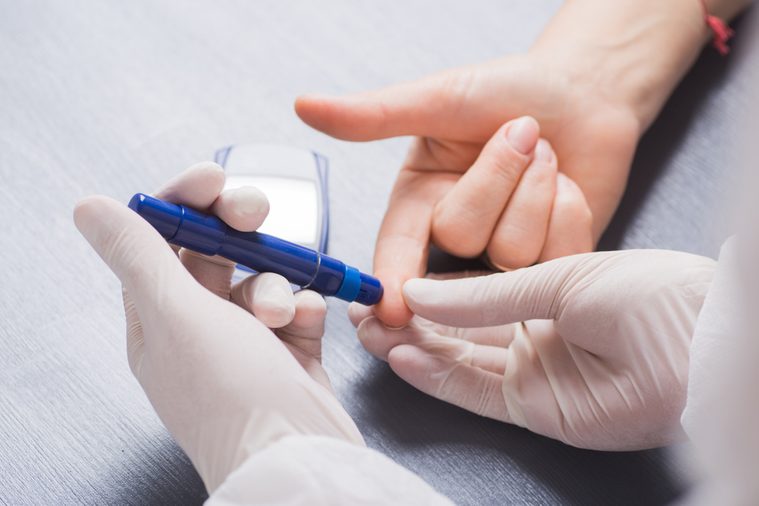
Your insulin sensitivity may improve
Without sugar and carbohydrates, your body is less likely to experience the energy roller coaster that eating simple carbs creates. “As you are unable to consume sugary or starchy foods and carbs, your system’s blood sugar levels are slower to rise,” The Naughty Nutritionists say. “This is beneficial to those who have blood sugar issues, or type 2 diabetes, as it will help to increase insulin sensitivity.” Don’t go into the keto diet blind. Read these 15 things you need to know before starting the keto diet.
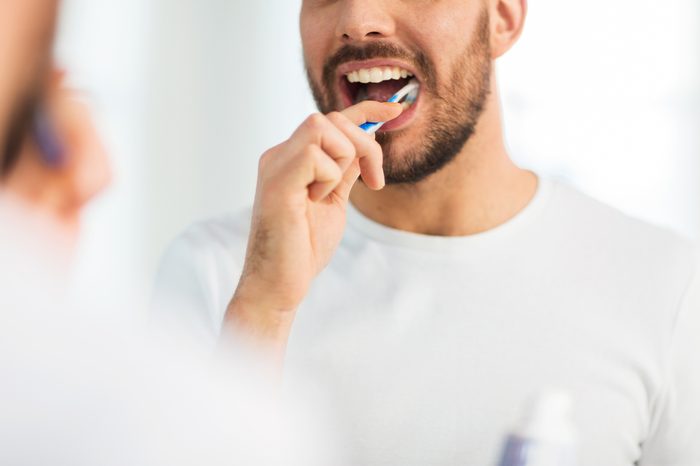
Your breath can smell
As your body adjusts to the lack of glucose for fuel, it begins to burn the carbs that have been stored as glycogen in your liver, then the fat surrounding your organs. This creates ketones, which then the body and brain use for fuel. “Once your body has entered into ketosis, you might notice something called ‘acetone breath,'” Weidner says. “This happens because when you’re in ketosis, the body produces a larger amount of acetone.”
In fact, one way to measure if you’re in ketosis or not is to use a breath test that will measure the acetone present in your breath, Weidner adds.
“[Ketosis] can become a smelly proposition you may quickly notice,” says Wes Shoemaker, host of the YouTube channel Highfalutin’ Low Carb. “The acetone is eliminated from the body as we breathe, creating a metallic taste and odor in the mouth,” he says. Shoemaker adds that some keto eaters consider the metallic taste a good sign, evidence their body has entered ketosis and is now burning fat—and ketones—for fuel.
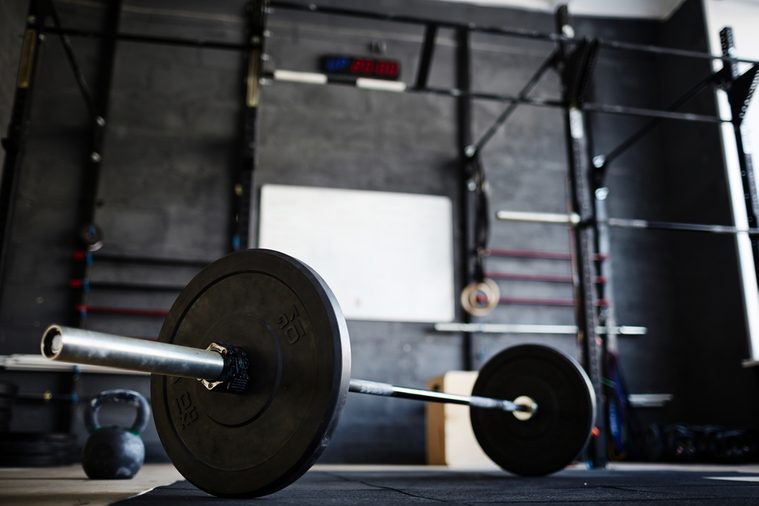
Your energy levels may stabilize, even increase
“Once the body is keto-adapted—which can take anywhere from six to 12 weeks—energy levels begin to stabilize,” Dr. Osborn says. “Unlike other diets in which one may experience energy spikes due to carbohydrate consumption, the keto diet provides a steady level of energy.”
“As your body enters a state of ketosis, it becomes very resourceful at burning fat for energy, as well as turning fat into ketones in the liver—which helps to supply energy to the brain,” say The Naughty Nutritionists. “Another theory suggests that as you give up highly-processed, sugary foods and eat more whole foods, which are necessary on a keto diet, your body sees more energy with an increase in nutrients.” Check out why keto is on its way to becoming one of the more popular diets to try.
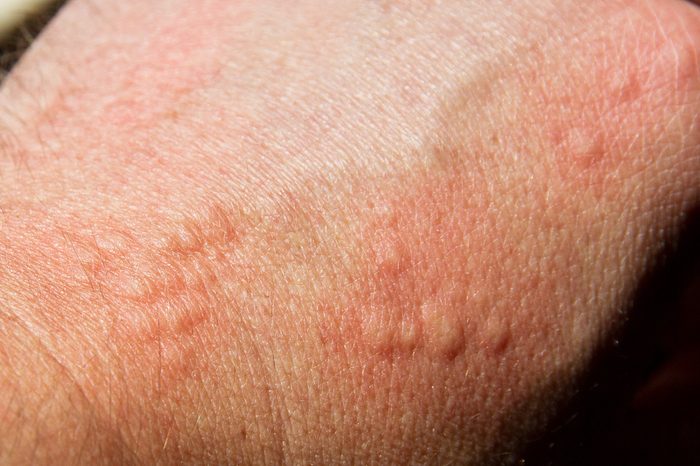
Inflammation may be reduced
Inflammation, especially chronic inflammation, increases your risk for a variety of conditions. These include heart disease, cancer, and bowel diseases. “The ketogenic diet lowers inflammation throughout all systems of your body,” Dr. Osborn says. “The diet has been known to improve arthritis, irritable bowel syndrome, Crohn’s disease, eczema, and be protective of your brain.” And that’s just one of the 10 unexpected health benefits of the keto diet.

You may develop a rash on your body
“Keto rash” is a less-well-known keto-related side effect, but it can happen. “While rare, this could be a sign of vitamin deficiency that some people experience when starting keto,” Weidner says. The rash appears as raised, red skin lesions. They can also be brown or light pink. It may be itchy and uncomfortable, but the keto rash is not dangerous.
“Those who experience this should widen the types of foods that they’re eating and take a multivitamin,” Weidner says. If the condition persists, she adds, “check in with a doctor.” Your doctor can quickly diagnose the rash. Don’t miss these 13 things doctors want you to know about the keto diet.
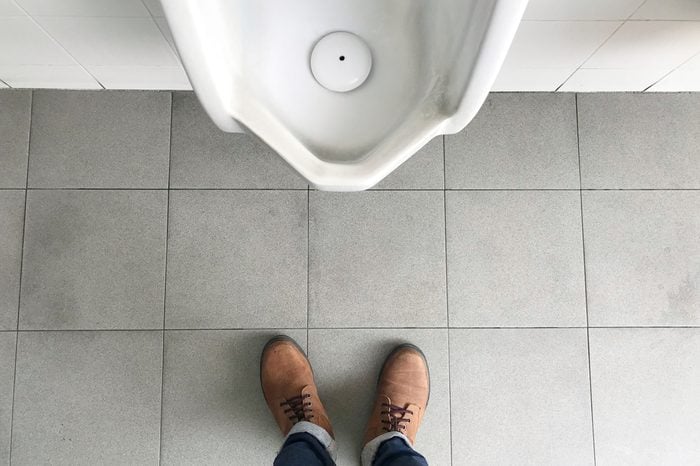
You may see changes to your urine
You may urinate more frequently, and the urine may be different. “People often report changes in the color, smell, and consistency of their urine, as well as urinating more frequently,” Weidner says. “This can be a product of your retaining less water than usual and excreting ketones, among other things.”
“When your body is not using any sugar from the blood for fuel, it defers to the liver where the liver stores carbohydrates in the form of glycogen, along with three times the weight in water,” according to The Naughty Nutritionists. “As the body burns off its glycogen stores, it also releases that water weight.”

You may experience tummy troubles
Making a major dietary change can cause some tummy troubles, says Lisa Davis, PhD, chief nutrition officer for Terra’s Kitchen, a healthy food delivery service. “Both constipation and diarrhea can occur.”
“Constipation is a frequently-reported symptom of keto converts,” Shoemaker says. “Drastically cutting carbohydrates intake can also mean drastically cutting fiber intake—but it doesn’t have to.”
Sure, you can’t eat grains or legumes on the keto diet, but you can load up on plenty of leafy greens (kale is great) and non-starchy vegetables to increase your fiber intake. This includes broccoli, cauliflower, and avocado.
“Once a new ketogenic dieter adjusts to this new way of eating, they often find that they are eating more vegetables and drinking more water than they previously did on their standard diet,” Shoemaker adds. If you have diarrhea, try one of these home remedies for diarrhea.
Next read the 50 things doctors wish you knew about losing weight.

